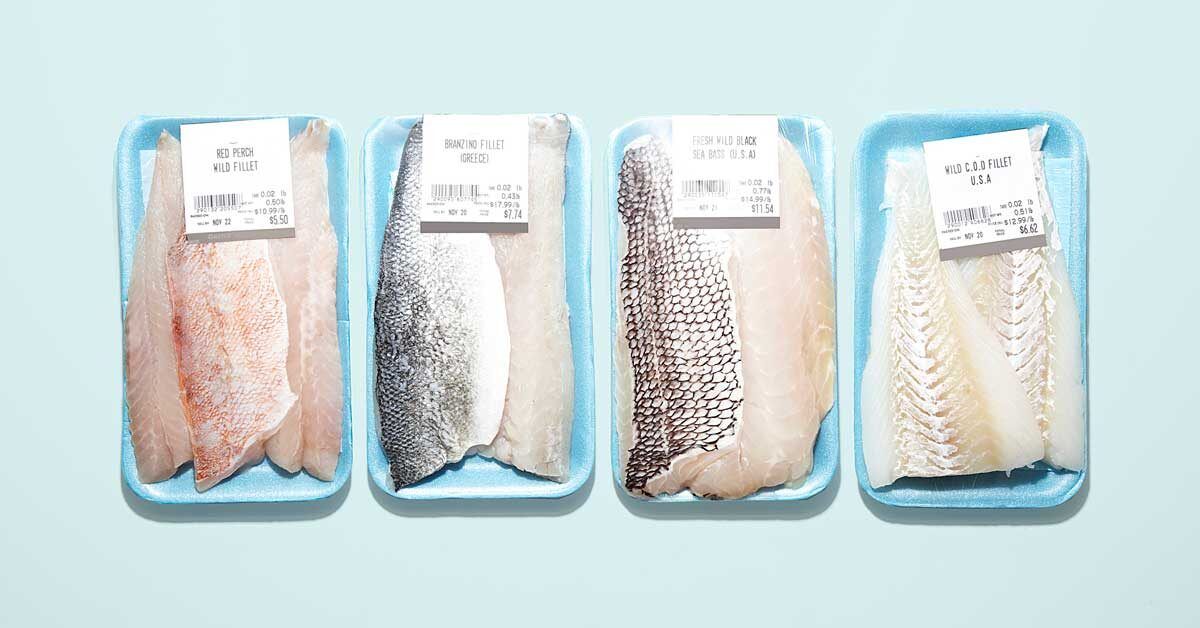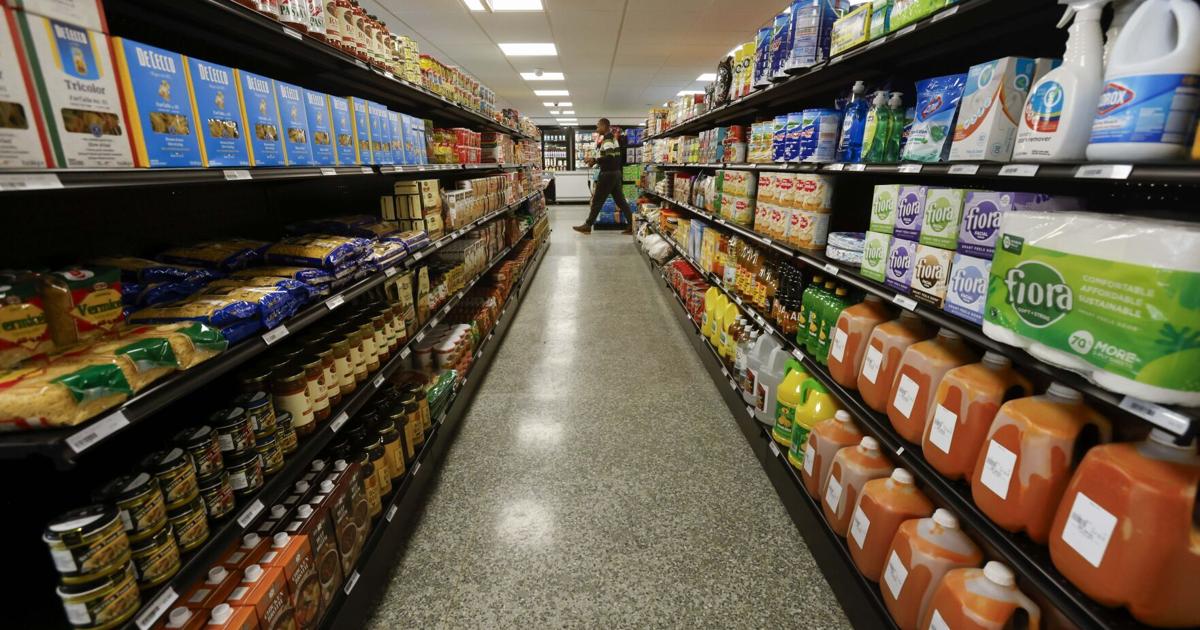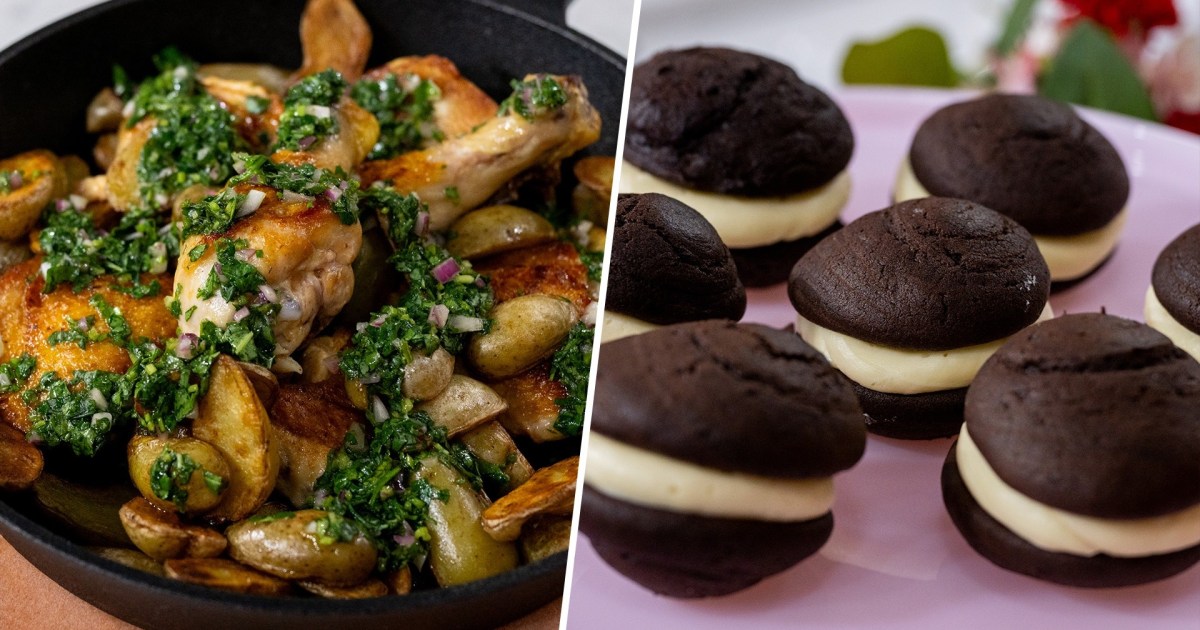Consuming protein-rich meals and snacks is essential for health and can support muscle growth and help you maintain a healthy body weight.
Though protein needs vary, experts suggest that most active people need to take in between 1.2-2.0 grams (g) of protein per kilogram (kg) of body weight per day (0.54-0.9 g per pound (lb)). Keep in mind that this is more than the recommended dietary allowance (RDA) for protein, which is currently set at 0.8 g/kg of body weight (0.36 g/lb)).
Protein sources, such as meat and legumes, have different levels of fat and are often categorized based on their fat content or leanness.
Lean proteins, such as skinless chicken breast and fat-free yogurt, contain lower amounts of fat and cholesterol compared to less lean proteins, such as full-fat dairy, certain types of beef, and whole eggs.
While leaner foods aren’t necessarily healthier or more nutritious than foods with higher fat contents, some people prefer leaner protein sources over those higher in fat. For example, people who need to follow lower-fat diets to control certain health conditions and those looking to cut back on their calorie intake may benefit from prioritizing leaner sources of protein.
Here are 11 of the best types of lean protein you can eat, plus helpful tips on how to incorporate more lean protein into your diet.
Kseniya Ovchinnikova / Getty Images
Skinless chicken breast is exceptionally lean and relatively low in calories.
Here’s the nutrition breakdown for a 3-ounce serving of skinless chicken breast:
- Calories: 128
- Protein: 25.9 g
- Fat: 2.69
In addition to being a lean, protein-packed food, chicken breasts provides essential vitamins and minerals, such as the B vitamins niacin (B3) and pyridoxine (B6), as well as the minerals zinc and selenium.
Chicken breast is a versatile protein source that can add nutritional value to dishes like pasta, rice pilaf, and soups.
Protein powders, such as whey protein, pea protein, and collagen peptides, are an excellent choice for boosting your protein intake. Most protein powders are very low in fat, so they make a smart choice for those who want to prioritize leaner protein sources.
Here’s the nutrition breakdown for a 28 g serving of whey protein isolate protein powder:
- Calories: 110
- Protein: 25 g
- Fat: 0.5 g
Using protein powders in smoothies and shakes and adding them to dishes like oatmeal and chia pudding can help make them more satisfying, which can help you eat fewer overall calories.
In fact, studies show that consuming protein powders, like whey protein powder, increases satiety-inducing hormones such as peptide YY (PYY) and glucagon-like peptide 1 (GLP-1), which helps you feel full and reduces calorie intake. This is why increasing your intake of protein powders and other protein-rich foods is an effective way to promote weight loss.
Beans and lentils are an excellent source of plant-based protein and are naturally low in fat.
A one-cup serving of cooked lentils provides:
- Calories: 230
- Protein: 17.9 g
- Fat: 0.75 g
Unlike animal-based proteins, like chicken and beef, beans and lentils are rich in fiber, a nutrient that’s important for the health of the digestive and cardiovascular systems. For example, fiber helps keep bowel movements regular and supports healthy cholesterol and blood pressure levels.
Like protein, fiber helps you feel full after eating, so choosing foods high in protein and fiber can be especially effective for supporting healthy weight loss and improving body composition.
Cottage cheese is a protein-rich dairy product that comes in a variety of fat percentages. Skim and reduced-fat cottage cheese products are low in fat but packed with protein.
A one-cup serving of 1% cottage cheese contains:
- Calories: 163
- Protein: 28 g
- Fat: 2.3 g
In addition to being low in calories and rich in protein, low-fat and skim cottage cheese provides a number of essential vitamins and minerals, including calcium, a mineral needed for building and maintaining a healthy skeletal system and supporting the function of the nervous and cardiovascular systems. A one-cup serving of 1% cottage cheese covers 11% of your daily calcium needs.
Greek yogurt is another high-protein dairy product that’s available in several fat percentages, including 1% and skim.
A 6-ounce serving of fat-free Greek yogurt provides:
- Calories: 100
- Protein: 17.5 g
- Fat: 0.62 g
While all yogurt products contain protein, Greek yogurt is especially rich in this important nutrient. Greek yogurt provides more than twice the amount of protein found in regular yogurt, with a 6-ounce container of Greek yogurt providing 17.5 grams of protein, compared to just 7 grams found in the same serving of regular yogurt. It’s also a good source of calcium, vitamin B12, selenium, magnesium, and several other essential nutrients.
Seafood, such as fish and shellfish, is one of the most concentrated sources of protein you can eat. Some types of fish and shellfish are leaner and lower in calories than others. Lean fish, like cod and flounder, store most of their fat in their liver, while fattier fish, like salmon and tuna, store fat in their flesh.
Both lean and fatty seafood types are nutritious, but some people may prefer leaner fish and shellfish, such as halibut, crab, and scallops, over fattier seafood types.
Here’s the nutrition breakdown for a 3-ounce serving of cod:
- Calories: 89.2
- Protein: 19.4 g
- Fat: 0.73 g
Though lean fish are rich in protein plus vitamins and minerals like B12, selenium, and zinc, fattier fish are richer in omega-3 fats, which are protective fats with powerful anti-inflammatory properties in the body. To ensure you’re getting the most nutrients from seafood, it’s best to enjoy a variety of fish and shellfish, including lean and fatty types.
Like chicken, skinless turkey breast is an excellent source of lean protein.
A 3-ounce serving of skinless turkey breast provides:
- Calories: 125
- Protein: 25.6 g
- Fat: 1.77 g
Lean, protein-rich foods, like turkey breast, help support satiety as well as healthy blood sugar levels. Protein slows digestion, leading to a slower release of sugar into the bloodstream. Studies show that pairing poultry, like chicken and turkey breast, with carbohydrate-rich foods, like rice or pasta, can have beneficial effects on blood sugar control in people with diabetes.
If you’re looking for a plant-based food loaded with protein, look no further than tofu.
A 3-ounce serving of extra-firm tofu provides:
- Calories: 46.2
- Protein: 6.22 g
- Fat: 1.6 g
Tofu is low in calories and fat but is a good source of protein and other nutrients needed for optimal health. If you’re following a plant-based diet, eating tofu can help you meet your daily nutrient needs. Tofu provides minerals that tend to be low in plant-based eating patterns, such as calcium, selenium, zinc, and iron.
Beef is labeled according to leanness. Lean beef contains less than 10 grams of fat, 4.5 grams or less of saturated fat, and less than 95 milligrams (mg) of cholesterol per 100-gram serving. Extra-lean beef contains less than 5 grams of fat, less than 2 grams of saturated fat, and less than 95 mg of cholesterol per 100-gram serving.
Here’s the nutrition breakdown for a 3-ounce serving of extra-lean beef:
- Calories: 131
- Protein: 23.5 g
- Fat: 3.45 g
In addition to protein, beef is a concentrated source of vitamins and minerals, including iron, a mineral that’s needed for oxygen transportation, growth and development, cellular function, hormone production, and many other critical processes in the body. Unfortunately, iron deficiency is common, especially in certain populations, such as pregnant people and those with heavy periods.
A 3-ounce serving of ground beef provides 2.64 mg of iron, or 15% of the daily value (DV), making it a good choice for supporting healthy iron stores.
Whole eggs are a rich source of healthy fats, protein, vitamins, and minerals. However, egg yolks are high in fat and cholesterol, so some people prefer egg whites over whole eggs.
The white of two eggs provides:
- Calories: 34.4
- Protein: 7 g
- Fat: 0 g
Though egg whites are very low in calories and contain zero fat, it’s important to note that egg yolks provide most of the nutritional value of eggs, including nutrients such as vitamin B12, zinc, iron, selenium, and choline.
While egg whites can help you reach your protein goals when following a lower-fat diet, most people can enjoy whole eggs as part of a healthy, well-rounded eating pattern.
Though not as popular as beef, venison is known as one of the leanest game meats you can eat.
A 3-ounce serving of venison provides:
- Calories: 162
- Protein: 30.9 g
- Fat: 3.36 g
Venison is incredibly rich in protein and is high in several vitamins and minerals, including iron, selenium, and B12. A 3-ounce serving of venison covers 100% of your daily needs for B12, a vitamin needed for red blood cell production, neurological function, metabolism, and DNA synthesis.
If you struggle to meet your daily protein needs or simply want to incorporate more lean sources of protein in your diet, there are many easy ways to boost your protein intake.
Here are some tips that can help you get more lean protein in your diet:
- Swap your regular yogurt for Greek yogurt, which contains over twice as much protein.
- Add beans and lentils to plant-based dishes, like grain bowls, salads, and soups.
- Use protein powders to add lean protein to smoothies, oatmeal, and even baked goods.
- Add a scoop of collagen peptides to your morning coffee or tea.
- Incorporate more protein-rich plant and animal foods, like tofu and fish, into your meals and snacks.
- Make a protein-rich cottage cheese ice cream by blending low-fat cottage cheese, strawberries, and maple syrup until smooth and then freezing it for a sweet and satisfying dessert.
Though lean proteins like fat-free Greek yogurt and skinless chicken breast can help you meet your protein needs, it’s important to understand that higher-fat protein sources, like whole eggs, fatty fish, and full-fat dairy products, generally don’t need to be completely avoided. While some people, such as those who are more sensitive to dietary cholesterol, may benefit from choosing leaner protein sources, it’s not usually necessary to avoid all high-fat foods. In fact, fat is an essential nutrient, and high-fat foods, like egg yolks, full-fat dairy, avocados, and nuts, can help support healthy brain function, nutrient absorption, and hormone synthesis. Plus, fats help make meals and snacks more satisfying and delicious.
When choosing protein sources, and any other food for that matter, it’s best to choose foods based on their overall nutritional value rather than their calorie or fat content.
Lean protein sources, like skinless chicken breast, low-fat Greek Yogurt, and lentils, are generally low in fat and calories and can help you boost your protein intake. Plus, these foods can help you meet your needs for other essential nutrients, such as vitamins and minerals.
While some people prefer leaner protein sources over those higher in fat, it’s important to choose protein sources based on their overall nutritional value rather than their fat and calorie content.

:max_bytes(150000):strip_icc()/ChickenBreast-7c055ca42ace4670867b52b9ab642824.jpg)









